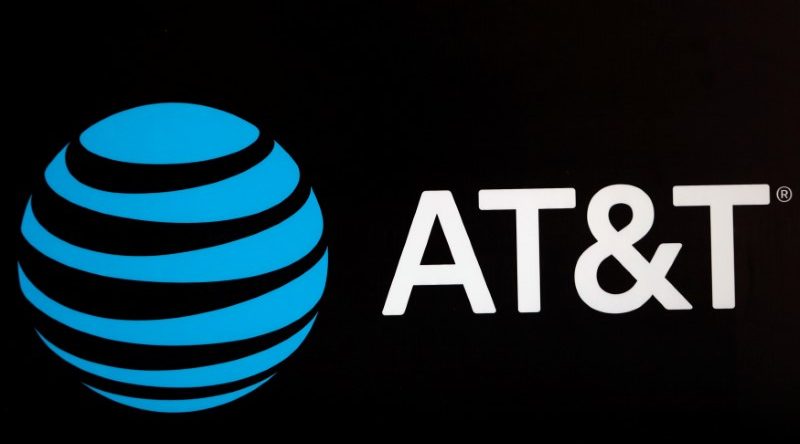A federal judge approved AT&T’s $85 billion bid for Time Warner on June 12, potentially paving the way for more consolidation in the sector that could reshape the media landscape.
Judge Richard Leon of the U.S. District Court for the District of Columbia ruled that AT&T could go forward with its proposed acquisition of Time Warner, rejecting the Department of Justice’s argument that the merger would raise prices and reduce competition.
Media stocks rallied after the court decision, as Wall Street analysts expect heightened deal activity. Time Warner and CBS shares were up more than 3 percent in early trading on June 13, while 21st Century Fox was up more than 7 percent and Netflix rose 5 percent. Lions Gate and Viacom were also up by more than 2 percent.
AT&T Inc. announced in October 2016 the acquisition of Time Warner Inc. for $84.5 billion in a stock-and-cash deal, which was the biggest merger announcement of the year.
According to Macquarie Research, the merger approval will create a domino effect on both the vertical and horizontal sector mergers and acquisitions.
A vertical integration means merging of two businesses that are at different stages of a supply chain, whereas a horizontal integration means merging two competing companies in the same sector.
Most other media stocks will be “in play one way or another, whether it’s more vertical deals between cable/telcos or new horizontal deals among media companies seeking scale to compete,” said Macquarie analysts Tim Nollen and Amy Young.
Just a day after the court’s decision in the AT&T-Time Warner case, cable giant Comcast made its much-anticipated bid for Twenty-First Century Fox. Comcast offered $65 billion for Fox’s entertainment businesses.
Comcast’s latest move will likely trigger a bidding war between Comcast and Walt Disney Co., which struck an all-stock deal last December for most of Fox’s assets.
The court’s decision can encourage other telecom players like Verizon or cable distributors like Charter to bid for media assets. Hollywood studios like MGM, Lions Gate, and Sony may all seek scale through acquisitions. In addition, tech giants like Apple Inc., Amazon.com, Google, and Facebook are all viewed as potential acquirers of media companies.
“It definitely stokes the environment, which is already seeing a lot of activity and some companies probably were holding off to see how things shook out,” said Matthew Pearlman, a senior reporter covering competition law at Law360, a legal news service.
“But it remains to be seen whether or not the government’s going to choose to challenge the next media merger. Just because it lost this one doesn’t mean it won’t challenge the next one,” he added.
Last November, the Justice Department filed an antitrust lawsuit to block the AT&T-Time Warner merger, arguing that the deal “would harm competition, resulting in higher bills and less innovation” for American consumers.
But Judge Leon held in his 172-page ruling that it’s not clear that the merger would lessen the competition.
“I conclude that the government has failed to meet its burden to establish that the proposed ‘transaction is likely to lessen competition substantially,’” he said.
“We are disappointed with the Court’s decision,” Makan Delrahim, the Justice Department’s antitrust chief, said on June 12, after the court’s ruling.
“We continue to believe that the pay-TV market will be less competitive and less innovative as a result of the proposed merger between AT&T and Time Warner. We will closely review the Court’s opinion and consider next steps.”
The district court’s green light of the first big vertical merger in decades will increase the difficulty the government faces in challenging such deals, experts say.
The Department of Justice can appeal the court’s decision and ask for an injunction that could stop the deal from closing before the June 21 termination date set by AT&T and Time Warner. But the appeals process may not be worth it.
If the Justice Department loses again, “it will be even more difficult the next time they go to challenge a similar deal,” Pearlman said.
Bad News for Consumers
During the 2016 presidential campaign, then-candidate Donald Trump said his administration would not allow the merger because “it is too much concentration of power in the hands of too few.”
Some Democrats voiced concerns about the deal as well. In June last year, a group of Democratic senators, including Elizabeth Warren (D-Mass.), called on the Justice Department to block the proposed AT&T-Time Warner merger.
The merger will shape how much consumers pay for TV series and movies, according to consumer advocate groups. Consumers may face higher prices for both cable TV and streaming services as a result of the deal, they warn, claiming that things will get worse if the consolidation in the media industry continues.
The AT&T-Time Warner transaction would combine the largest U.S. pay-TV provider and second-largest wireless operator with one of the nation’s largest content providers.
The merged company will be a competitive alternative to cable TV and other video providers. And customers will be able to access content on all of their devices.
In 2015, AT&T bought DirecTV, the pay-TV provider and the merger enabled the telecom giant to provide a bundled product including TV, mobile, and high-speed internet. With this recent deal, AT&T will gain access to Time Warner’s TV and movie content, including its premium assets: HBO, CNN, and TNT.
From The Epoch Times


